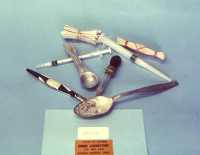Author Interviews, CDC, Emergency Care, Occupational Health, Opiods / 02.05.2019
Emergency Personnel: Unintentional Occupational Exposure to Opioids
MedicalResearch.com Interview with:
Sophia K. Chiu, MD
Epidemic Intelligence Service, CDC
Division of Surveillance, Hazard Evaluations, and Field Studies
National Institute for Occupational Safety and Health
CDC
MedicalResearch.com: What is the background for this study?
Response: Responders across the United States are reporting work-related health effects during incidents in which suspected opioids (including fentanyl) and other illicit drugs such as cocaine, methamphetamine, cathinones, and synthetic cannabinoids are present, often as a mixture. These health effects have interfered with responders’ ability to perform their job duties.
Since 2018, a number of responder organizations have requested that NIOSH investigate the health effects experienced by emergency responders during these response incidents. These organizations are looking for ways to protect their responders and prevent the symptoms responders have reported experiencing, so that they can in turn better serve the public. NIOSH’s goal is to increase awareness among responders of how they can remain safe while providing the care the public needs.
(more…)


